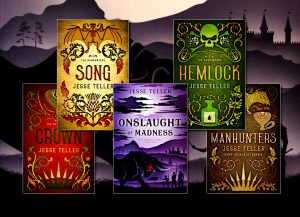Author Spotlight: JESSE TELLER
Joining us for today’s Author Spotlight is Jesse Teller!
Jesse Teller fell in love with fantasy when he was five years old and played his first game of Dungeons & Dragons. The game gave him the ability to create stories and characters from a young age. He started consuming fantasy in every form and, by nine, was obsessed with the genre. As a young adult, he knew he wanted to make his life about fantasy. From exploring the relationship between man and woman, to studying the qualities of a leader or a tyrant, Jesse Teller uses his stories and settings to study real-world themes and issues.
He lives with his supportive wife, Rebekah, and his two inspiring children, Rayph and Tobin.
Welcome to the Hive, Jesse. Let’s start small: tell us about a great book you’ve read recently!
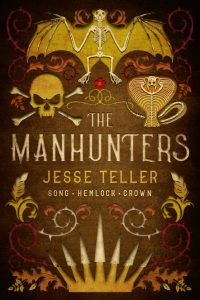 My reading schedule looks very much like a college course. I like to read classics and things you won’t find in modern literature. I get really turned on by Lovecraft, Howard, but recently I read a collection of Penny Dreadfuls. It had Mary Shelley’s Frankenstein in it. It had Jekyll and Hyde, Sawney Bean, but the reason I bought it was because it contained a story called The Diary of a Madman, and I had wanted to read that since, well, as long as I can remember. The only thing disappointing about The Diary of a Madman was its length. I could have read that forever. The Penny Dreadfuls I found to be very dark, and because most of them were short, I learned a lot about condensing my prose into a tight, intense knot. There was one story, I can’t remember the name of it, it was about a haunted castle where a person had committed suicide. The castle was so haunted, no one would go in to get the body. Generations later, some college kids went into that castle. We see this every day in modern cinema, college kids going into haunted sanitariums to search for ghosts. Everybody’s seen that movie. This was the original. I remember at one point one of those college kids walked into a ballroom and the scene described in that short story was so horrifying, it was almost impossible for me to walk down the dark hallway to the bathroom after reading it. That was a good book.
My reading schedule looks very much like a college course. I like to read classics and things you won’t find in modern literature. I get really turned on by Lovecraft, Howard, but recently I read a collection of Penny Dreadfuls. It had Mary Shelley’s Frankenstein in it. It had Jekyll and Hyde, Sawney Bean, but the reason I bought it was because it contained a story called The Diary of a Madman, and I had wanted to read that since, well, as long as I can remember. The only thing disappointing about The Diary of a Madman was its length. I could have read that forever. The Penny Dreadfuls I found to be very dark, and because most of them were short, I learned a lot about condensing my prose into a tight, intense knot. There was one story, I can’t remember the name of it, it was about a haunted castle where a person had committed suicide. The castle was so haunted, no one would go in to get the body. Generations later, some college kids went into that castle. We see this every day in modern cinema, college kids going into haunted sanitariums to search for ghosts. Everybody’s seen that movie. This was the original. I remember at one point one of those college kids walked into a ballroom and the scene described in that short story was so horrifying, it was almost impossible for me to walk down the dark hallway to the bathroom after reading it. That was a good book.
Okay, time to escalate things: reality warps and you suddenly find yourself leading a D&D-style party through a monster-infested dungeon. What character class are you, and what’s your weapon of choice?
Well, you always have to go with the barbarian. Classic barbarian has a two-handed sword the size of the elf. I don’t want to go that way. I’m thinking, a more hand-crafted weapon. So give me two discs of flint with a handle chipped out of the middle, kind of like two axe blades you would hold in your hands. Now that wizard is gonna get flippant, and he’s gonna give me attitude. He’s hard to humiliate into obedience because he’s so much smarter than me, but I can catch him in his sleep, because I’m a barbarian. I’m good at sneaking up on people. And I’m gonna take his spellbook. I’ll go in and I’ll try to understand the spellbook and how he uses his power, but I can’t read. I’ll end up getting really frustrated and tearing a couple pages out. The thief is easy to intimidate. He’s not one for standing his ground, and I’m impossible to sneak up on, so I don’t really have to worry about him. The dwarf has my back. He listens to everything I say. He’s behind me 100%. He’ll even pull me aside and mutter to me when I have the map upside down. I think the cleric has a crush on me. She’s never seen a beast so tan and well-muscled. She keeps asking me about my scars. But I can’t get past the idea that the elf is a coward. He just shoots everything from a distance, and if you’re gonna kill something, if you’re really gonna kill it, you should be close enough that the blood splatters on your face.
And when can we expect this new story?
When you’re not trawling through dungeons, how do you like to work? (In silence, with music, or serenaded by the damned souls of a thousand dead shrimps? Do you prefer to type or to hand-write? Are you an architect or a gardener? A plotter or a pantser? D’you write in your underwear, or in a deep-sea diver’s suit?) Tell us a little bit about your writing method!
Okay, um, pantser, plotter, gardener, and architect are too well-described. They make too much sense. What happens with me is a little more calculated than a pantser, a little more chaotic than a plotter. Behind me, when I write, is a wall painted to look like a grid. It took my wife over 12 hours to prepare that wall. Down the right side are settings, across the top, years. A lot of my work—most/all of my work—depends on a very strict timeline. So, I keep cards, tiny 2-inch x 2-inch cards with descriptions of events, and I nail them into place in the year they belong. This helps me keep track of when and what things are happening. When I’m finished with a book, I take embroidery thread and I connect all those events so I can get a look at how the book lays. Once a string has been wrapped around a nail with that event in it, that event is written in stone.
The wall to my right has been painted with magnetic paint. Here’s where I put my notes, if you want to call them that. These are just sparks, just ideas that might make it into the book. Some of them catch fire and become scenes. A lot of them fizzle out and become nothing. It’s really a throw-it-against-the-wall-and-see-what-sticks writing style. It’s not exactly plotting, because a lot of those notes don’t make it into the book. When I go into a writing session, I have a vague notion of what I want to write and what I want to say. But for the most part, I make it up as I go along. Not exactly pantsing, because I do have the notes on the wall to my right, and I do have the timeline behind me. I can’t be called a gardener, although I do plant ideas in my work and watch them grow. But I can’t be called an architect because a lot of the time it feels like I am throwing the track down in front of a speeding train.
I’ve been doing this so long that I’ve gone through phases, and now all those phases have blended together. I have to write in silence, only the loud clacking of the keys can be heard. So I write at night while everybody else is asleep. I usually pick one shirt for each book, and when I go downstairs to work, I put that shirt on. By the end of the book, I should burn it, but I don’t. I’ve been writing for 15 years. I’ve written numerous books. My process is a collection of many different influences and very hard to pin down.
That’s quite a process!
What (or who) are your most significant fantasy influences? Are there any creators whom you dream of working with someday?
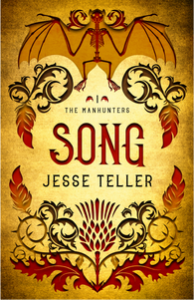 My biggest fantasy influences are Stephen King, George RR Martin, and Steven Erikson. However, these are not the people I want to work with. I don’t know these guys. I’ve never had a conversation with Stephen King. I don’t trust him. He’s not a brother to me. He’s not a sister. There are a small group of people I do know, other self-published writers. I have talked to them. I do trust them. There are many of them I would work with on an anthology or even a single novel. This is gonna sound like a shout-out, but I gotta say top on this list is M.L. Spencer and Richard Nell. I know them both well, I have deep respect for both of them, and they’re both geniuses. If we’re making a wish list, we gotta throw Rob Hayes on that list. Charles Phipps writes with such a different style than me that if the two of us were to write a book together it would be a dark fever dream, mixed in with humor and deer puns. But I still wouldn’t mind trying. You’ve got Benedict Patrick, I’d like to see what would come of that. I’ve got a lot of friends, if I could work with anyone, famous, renowned, international, I would still pick these guys.
My biggest fantasy influences are Stephen King, George RR Martin, and Steven Erikson. However, these are not the people I want to work with. I don’t know these guys. I’ve never had a conversation with Stephen King. I don’t trust him. He’s not a brother to me. He’s not a sister. There are a small group of people I do know, other self-published writers. I have talked to them. I do trust them. There are many of them I would work with on an anthology or even a single novel. This is gonna sound like a shout-out, but I gotta say top on this list is M.L. Spencer and Richard Nell. I know them both well, I have deep respect for both of them, and they’re both geniuses. If we’re making a wish list, we gotta throw Rob Hayes on that list. Charles Phipps writes with such a different style than me that if the two of us were to write a book together it would be a dark fever dream, mixed in with humor and deer puns. But I still wouldn’t mind trying. You’ve got Benedict Patrick, I’d like to see what would come of that. I’ve got a lot of friends, if I could work with anyone, famous, renowned, international, I would still pick these guys.
What was the last thing you watched on TV and why did you choose to watch it? Alternatively, what games have you enjoyed recently?
Okay, I don’t play video games. They take up way too much time. I used to live in a game called World of Warcraft, and as soon as I broke out of that prison I never went back. Television shows, I use as a tool. They’re a tool for getting work done, nothing more. I may write a scene, but that night I’ve plotted out to write an entire chapter, so between one scene and the next, I’ll need some kind of break. Depending on the intensity of the scene I’ve just written, it’s either a 20-minute show, or a 40-minute show, or an hour show. This is similar to a pallet cleanser, something to change the mood in the room and to get me thinking in another direction long enough to bring my focus back. I just finished Black Butler. It’s an anime, absolutely genius. In 26 episodes, it took me two books to get through it. Right now my pallet cleanser 20-minute show is a show called BoJack Horseman. It reminds me of that fever dream Charles and I might have one day. Then there are shows I use for research. Now when I say research, I do not mean research for knowledge. These shows are more research for mood, for tone. Right now, that research show is a show called The Haunting of Hill House. It’s intense. It’s terrifying. It’s heartbreaking. It’s got every emotion that I want in the book I’m working on. So I’m researching those emotions. Most of the research I do is emotional research. How do I set this tone? How do I capture this attitude? Research for facts is very sparse with me, I’m creating my own world. But emotions and attitude, that’s real and tangible. And that’s what I spend my time researching.
The world shifts, and you find yourself with an extra day on your hands during which you’re not allowed to write. How do you choose to spend the day?
The 8th day of my week is called Flausday. I always get drunk on Flausday. Usually, I end up getting on a particular writers Facebook group and making an idiot out of myself. Flausday morning I get up and my wife is eager to make me pancakes. She’s dressed up in something snazzy. My kids are well-behaved savages, screaming and yelling downstairs in our basement, but not making a mess. I eat my pancakes in peace, usually with Shinedown or Seether blaring in the background. I drink coffee, but it’s cold brew coffee with honey and a little bit of mocha. And I don’t think about the world that I am writing in. Flausday has no character development in them. I never find myself staring off into nothing. I never feel as though I am moving through a haze, confused about where I am and who I’m with. On Flausday I hear and understand and remember every single word my wife says. On Flausday the door to my office is sealed shut with, like, layers of wax in all the creases and bends, like King Tut’s tomb. I’ll melt that wax the next day. I’ll break the seal and enter my office again. But on Flausday, it’s impossible to get in there. For dinner on Flausday, we always have spiced whole chicken, macaroni and cheese, and brussel sprouts, and it is the only day when my oldest son will eat all his brussel sprouts and barely touch his macaroni and cheese. On Flausday, I go to bed early. I go to bed at the time my wife goes to bed, and we talk as we’re drifting off to sleep, and at first it makes perfect sense. But as sleep enters our minds, our words become garbled, abstract, and in the very end, we’re just muttering. Flausday is so perfect that it has wiped me out and I sleep late into the afternoon and get back to it.
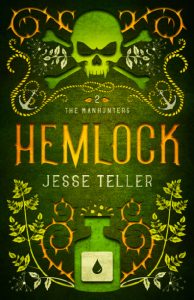
Can you tell us a little something about your current work(s) in progress?
Currently I’m working on five series. I’m writing the books one at a time. All of the book ones are done, and I’m working on the first book two. All of these series are joined by unifying events. They cross over each other, and you can read all the book ones back-to-back and get a full story. You can also choose to read books 1-5 of a single series and get a full story. It’s a new way of writing I don’t think has ever been done before. I’m not 100% sure it’s possible. It’s more of an experiment than anything else. I’ve asked for beta readers to look at my book ones, to read them and tell me what they think. And so far only one has taken me up on it. It’s experimental literature that won’t see publication for another decade. It might work, it might not. It’s like writing a puzzle box, and it is taking all of my mind and all of my concentration to do it. I often find myself walking through a haze, unable to concentrate on anything in the world around me. And a lot of times, just to prepare for the night’s work, I’ll spend hours in a made bed, staring up at the ceiling, listening to comedy shows on repeat. That seems to be the only thing that keeps me sane right now. Like I said, I don’t know if this style of writing is possible. But I’ve got nothing else to do, so I might as well try, right?
What’s the most (and/or least) helpful piece of writing advice you’ve ever received?
I read a book by a best-selling author once, when I was getting started, and he said the best way to learn how to write a book is to write ten.
Stephen King said that his process was that he got up every day and wrote 2000 words.
I often find myself getting super distracted and frustrated with the actions of other people, and during one of my pointless rants a couple weeks ago, Rob Hayes said, “Dood, just let it go. ”
And I was watching a movie with Adam Sandler in it called Mr. Deeds. I don’t know if you remember this movie, simple every-man finds out he’s the heir to billions of dollars. He ends up in this massive penthouse in New York City, with a very tricky butler and a lot of prying media. In one scene, he takes his shoes off and one of his feet is jet black. The butler freaks out. He’s appalled, horrified. But Mr. Deeds informs him that he got frostbite on his foot really bad, and it now has no feeling. The butler is intrigued by this numbness, and asks to prove it. So Mr. Deeds tells him to stomp on his foot. Nothing happens. Butler stomps on his foot again. Nothing happens. Encouraged by Mr. Deeds, the butler picks up the fireplace poker and starts pounding on the black foot. And Mr. Deeds says, “Hit it again. Hit it again.” And every time, the butler looks up at him, shocked. Finally, Mr. Deeds looks at him and says, “C’mon, chop that wood.” Chop that wood. An odd scene to use to build your entire life, but it has become the thing that motivates me the most. Because it doesn’t hurt. Writing doesn’t hurt. Working doesn’t hurt. So chop that wood. I use it as a motivation to every day get in front of my computer, every day pound out more and more words. It runs through my mind every now and then, chop that wood.
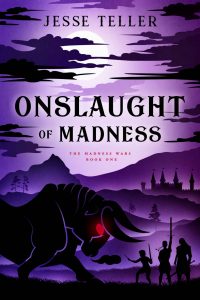 Sneaky, sneaky, sir.
Sneaky, sneaky, sir.
Every writer encounters stumbling blocks, be it a difficult chapter, challenging subject matter or just starting a new project. How do you motivate yourself on days when you don’t want to write?
I lived a very abusive childhood, and it messed me up pretty bad. In order to make myself a healthy man, and to stop myself from committing suicide, I went to therapy for 17 years. When you go to therapy for that long, it helps you understand the limits of the human mind. It helps to teach you how to take a person and their motivations apart like a puzzle, study them, and put them back together. After 17 years of intensely studying yourself and the other people in your life, you learn how to overcome your stumbling blocks. The most helpful thing work-wise that I ever learned was that work can be fulfilling, that people need love, spirituality, and meaning in their lives. Oftentimes, work gives them that meaning. Sometimes your job just sucks. I came from working class poor. The jobs I had when I was young were demeaning, exhausting, and paid terribly. You can find very little fulfilment in that kind of job. However, there is a kind of satisfaction that can only come, can only truly be reached, from a hard day’s work. I have the luxury of having a job that fulfils me as a person, that inspires me as an artist, and that makes me a better man. Once you find out that work can fill you up, it can satisfy you in ways nothing else can, the stumbling blocks aren’t so high. The distractions aren’t so bright. And the focus becomes precise.
If you could visit any country at any point in history, where/when would you go, and why?
Probably France right before the French Revolution. If you go and talk to the people who inspired the revolution, you’ll find some of the greatest philosophical minds of all time. The way they spoke, the way they talked to each other and the way they talked to the masses lit people on fire. Good oratory has always inspired me. When a person knows what they want to say, and they know how to say it in a way nobody else would, I get real turned on by that. Likewise, America during the American Revolution. The South right before the Civil War, the way they talked to each other, the things they said. Any time in history where people have talked and riled the blood of the masses, when people have been able to say what everyone else was thinking in a way that provided clarity and direction, those are times and places I want to study.
Tell us about a book that’s excellent, but underappreciated or obscure.
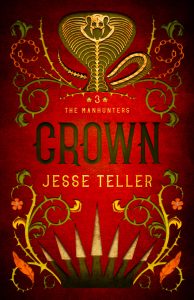
I’m not going to tell you about a book. I’m going to tell you about a novella. It was written by a man named Richard Nell. Now the problem with this novella is that Richard has written two novels, both of which are awe-inspiring, impossible to put down, and mind-bending. That’s the problem with this novella, because people are reading The Ash and Sand series—and they should be, because Ash and Sand is amazing—but those two books are the loud big brothers with a quiet little brother nobody ever hears from. It’s called Rebellion of the Black Militia. Excellent work. Amazing world building. Blow your mind kind of stuff. That novella made me want to know the man. And there are books like that, there are books where you read the book and you really want to know the person who wrote it. Now there are people who want to know the person who wrote it so they can talk to that person about the work. Oftentimes, after a reviewer or reader has read a book they’ve fallen in love with, they want to talk to the author about that book. Black Militia didn’t make me want to talk to him about Black Militia, Black Militia made me want to sit down and have a beer with him. It made me want to grill a steak with him. It made me want to get in a bar fight, me and him back-to-back, spitting and cussing. Black Militia made me want to know the man. Now, he has put that novella together with another one and released it as a collection called The God King’s Legacy. If you’re walking by an e-book warehouse and you look in the window and this book catches your eye, stop and pick it up. Find me. And we’ll go get in a bar fight with Richard Nell.
Finally, would you be so kind as to dazzle us with an elevator pitch? Why should readers check out your work?
My books appeal to every level of reader. The reader who wants to read a short story can pick up Blackest Knights anthology and read The Land of Rott and Cur by Jesse Teller. The reader who wants to read a novella can pick up Legends of the Exiles and pick one out of the four. The reader who wants to read a novel has their choice of Chaste, Mestlven, or Liefdom. All can stand alone, if this reader only wants to read one book. If the reader wants to read a series, there are plenty of those coming, but the one they can find now is The Manhunters trilogy, three complete books that tell a complete story. Every now and then, you come across a reader whose one desire is obsession. Their one desire is to find a world where all the books intertwine, where every book is written in the same world and every story in some way touches the next. For those obsessive readers, I would say, take a look at Jesse Teller.
Fantastic! Thanks again for joining us Jesse, and good luck with your epic writing project!
Jesse Teller is the author of numerous fantasy novels, including the MANHUNTERS series. His latest novel, ONSLAUGHT OF MADNESS, is available now.
